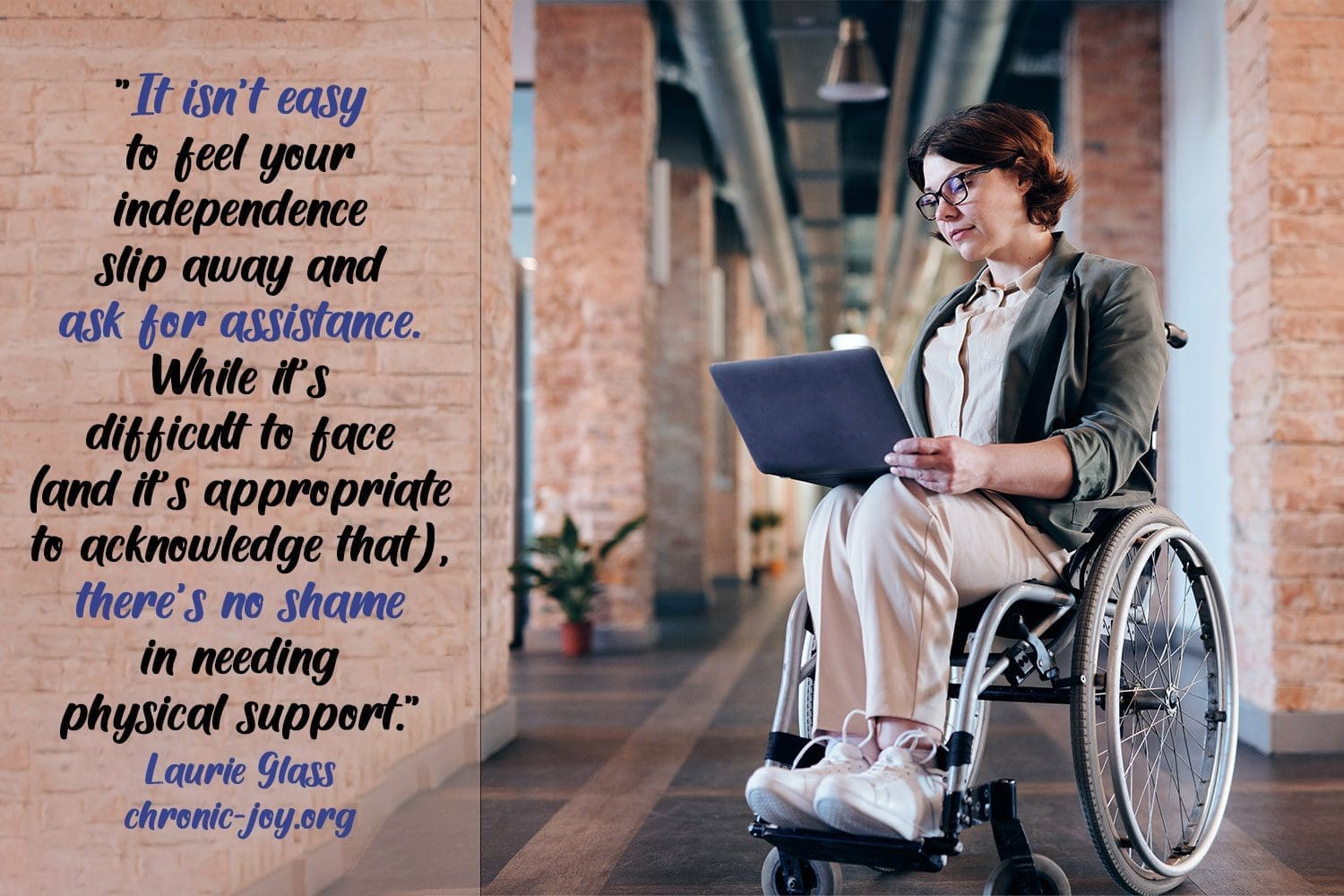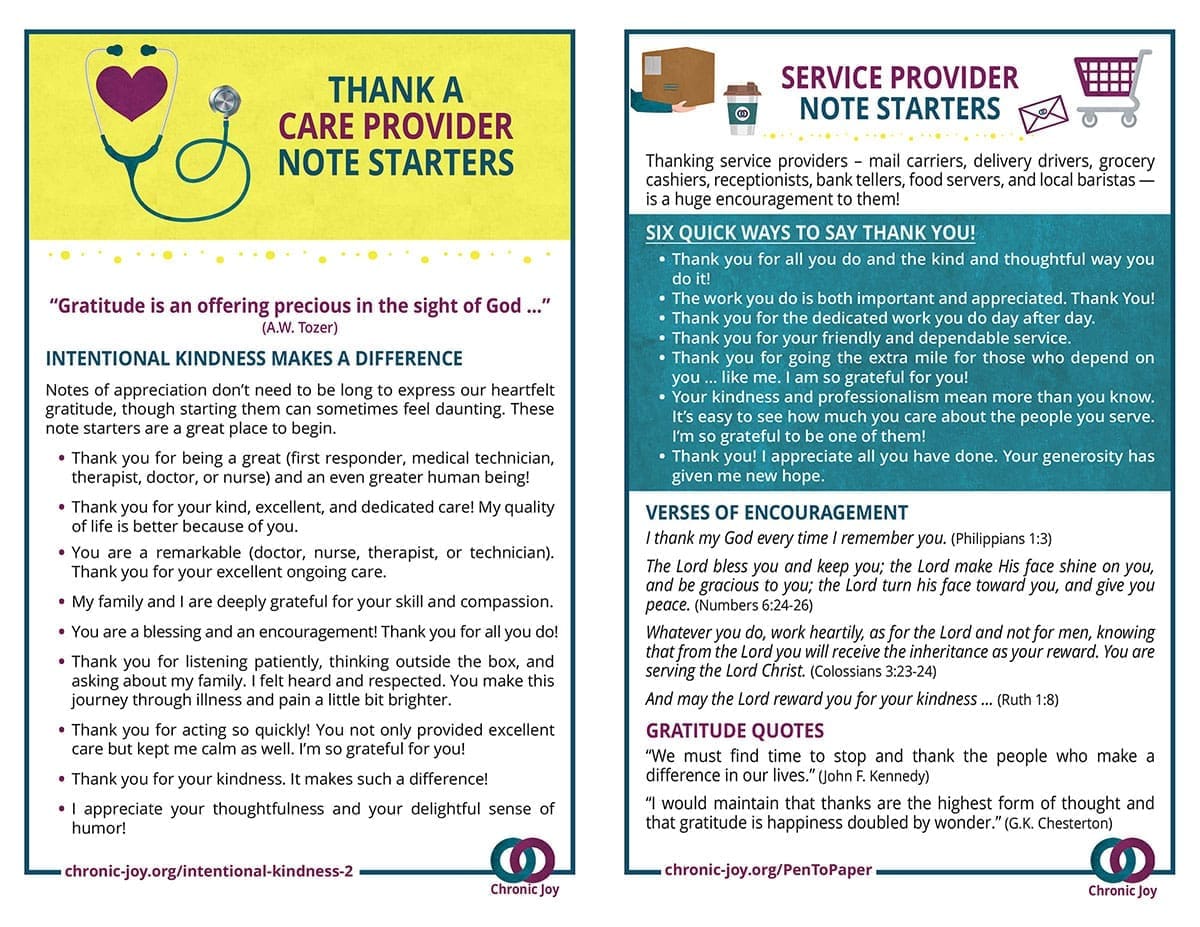
“It isn’t easy to feel your independence slip away and ask for assistance. While it’s difficult to face (and it’s appropriate to acknowledge that), there’s no shame in needing physical support.” (Laurie Glass)
Truly, my soul finds rest in God alone; my salvation comes from him. Truly, he is my rock and my salvation; he is my fortress; I will never be shaken. (Psalms 62:1-2)
LEARN TO ACCEPT HELP
When you have a chronic illness, you may need to use physical aids like scooters or shower chairs. You might also need assistance with your home or personal care. This isn’t what you planned for your life, so it may take time to accept.
Try to be gentle with yourself as you face your increasing needs.
PHYSICAL AIDS
Understand that helpful equipment and gadgets such as wheelchairs, walkers, grabbers, or pill organizers are smart ways to manage your struggles. They may keep you safe, conserve your energy, and help you organize and remember to take your medications or supplements. Take advantage of anything that enables you to manage better and make your life easier.
Using these tools is nothing to be embarrassed about. Yes, it may be hard to accept that you’ve come to need them (and it’s okay to take time to process that), but try to focus on what a benefit they can be. They may improve your quality of life or help you retain some of your independence. Try to focus on being grateful that such aids are at your disposal.
ACCEPTING HELP
Accepting help doesn’t mean you’re giving in to the illness. You’re simply giving your body what it needs. Receiving physical support is one way to take care of yourself. Your long-term health may benefit if you don’t have to exert yourself as much.
Resist the temptation to think of yourself as a burden. Ask yourself if that’s how you’d view someone else if the situation were reversed. Even if others treat you like a burden, it doesn’t speak to who you are. It’s a reflection on them, not you. Again, you are not a burden. Remind yourself of this as often as you need to until it sticks.
Given all the one another commands in the Bible conveying that believers are to minister to others, it’s clear that God’s plan for humans is that they help and support one another. That means someone has to be on the receiving end. It’s okay if that someone is you. Let that sink in.
IN ACCEPTING HELP, YOU MAY PROVIDE HELP
When others help you, realize that you might also be helping them. They may be inspired by the way you cope with what you’re experiencing. When they get a closer look at your life, they may become more empathetic toward others with chronic illness or temporary health struggles.
As you spend time together and get to know each other better, they may benefit from you taking the time to listen to their concerns. In some instances, you might have the opportunity to share the gospel – and no matter where they are spiritually, you can bless them with your prayers. Coming before a Holy God on behalf of others is a privilege and a ministry.
Some people need to feel needed; they love to help others with practical tasks and personal care. For some, helping others is exercising a spiritual gift they are eager to share in service to God. While receiving their help, you allow them to serve, feel needed, and do what they enjoy.
Remember that hiring help, whether through a program or private pay, provides someone with income. Your need for physical assistance can be a way to benefit someone else financially.
GIVE YOURSELF TIME
Give yourself time to accept using physical aids, and then move forward in gratitude for how they benefit you. While it’s a change, it doesn’t have to rattle you. Ask the Lord to help you adjust to needing assistance. Let Him steady you and help you accept being on the receiving end. It may be a significant life change, but consider this: you’d probably be happy to help someone else if the situation were reversed. Remember that, and let someone else be glad for the opportunity to support you. At the same time, consider that you may positively influence them. Be open to God’s leading and watch for what He has in store.
You may want to use the printable 7 Simple Ways to Thank Care Providers to show appreciation for those who help you.


Laurie Glass
Chronic Joy® Staff Writer
Laurie has a Master's Degree in Christian Counseling and is the author of Coping with ME/CFS. Many of her poems and articles have been published in print and online. She won the Open Medicine Foundation poetry contest in 2019. Laurie loves to use her gift of writing to encourage others. Her book is available on Amazon.

Thank a Care Provider Note Starters
Notes of appreciation don’t need to be long to express our heartfelt gratitude, though starting them can sometimes feel daunting. These note starters are a great place to begin.

Recent Comments